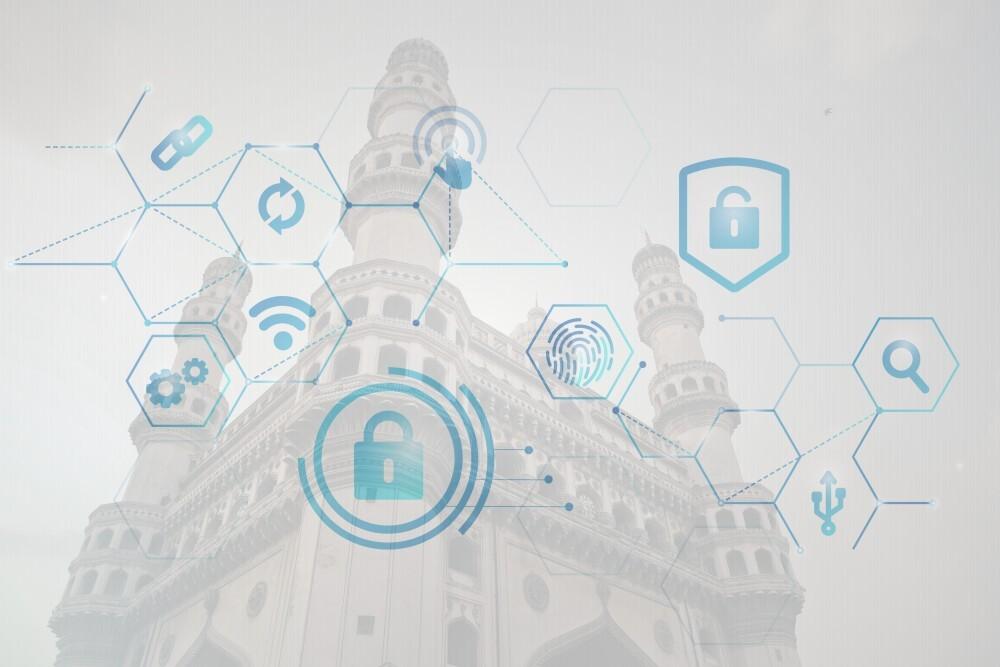
Why Cybersecurity is Critical for National Defense: Protecting Countries in the Digital Age
Did you know that a ransomware attack on C-Edge Technologies, a key service provider for banks, forced nearly 300 small Indian banks offline? This incident highlights the devastating potential of cyberattacks to disrupt an entire nation’s operations within seconds.
In today’s interconnected world, cybersecurity is critical for national defense as traditional forces like the army, navy, and air force. Nations, corporations and even individuals rely on digital systems for everything, from a simple exchange of information to complex military operations. Protecting these systems is no longer an optional and safeguarding these connections is of great priority in these risk-muddled times.
What is Cybersecurity in National Defense?
Cybersecurity refers to the technologies and practices designed to protect devices, networks, and systems from unauthorized access or attacks. In the realm of national defense, it is of paramount importance. A single data breach can compromise critical security systems, leaving the nation exposed to threats from hostile states and cybercriminals.
Securing a country's digital assets such as government databases, military communication systems, and critical infrastructure like energy grids is as crucial as safeguarding the physical boundaries. Modern defense strategies heavily rely on emerging technologies and practices to enhance protection of these systems from cyberattacks. Despite these advancements, it is essential for nations to evolve continuously, lest risk expansion of chinks in the armour.
Why Cybersecurity is Critical for National Defense?
Cybersecurity technologies are a country's most valuable assets,serving as a shield against potential threats that could destabilize its infrastructure, military, and governance.
Protecting Critical Infrastructure: Systems managing essential services like electricity, water supply, and transportation rely on digital networks. A cyberattack on these systems could lead to widespread outages, disrupt daily life, and create nationwide chaos.
Safeguarding Military Operations: The military heavily relies on digital platforms extensively for communication, strategy and operations. Breaches in these systems could expose sensitive data, compromise missions, or disrupt operations, jeopardizing national security.
Preventing Cyber Warfare: In today’s geopolitical climate, cyberattacks are frequently used by nations or terrorist groups to steal sensitive information or disrupt security systems. Well fortified cybersecurity measures are essential to defend against such politically motivated threats.
Securing Government Data: Information lost is opportunity surrendered. Government agencies store critical data on citizens, defense strategies, and diplomatic relations. If this information is compromised, it not only risks public safety but also weakens a nation’s strategic position.
Examples of Cyber Threats to National Defense
Cybersecurity is critical for national defense systems, as cybercriminals innovate ways to undermine a nation's security.
State-sponsored Attacks: These cyberattacks are conducted or supported by government entities targeting other nations. Their goals often include stealing data, conducting espionage or disrupting operations. State-sponsored attacks can be conducted by interfering in election processes, attacking the security of government agencies and other actions that interrupt seamless services.
Terrorist Cyberattacks: Terrorist groups leverage cyberattacks to cause widespread chaos and fear. They achieve this by targeting public services, critical infrastructure like energy grids or transportation, and essential communication networks, crushing a nation's operations and security.
Hacktivism: Hactivists are politically or socially motivated groups that break into systems and networks to promote their agenda. These groups aim to disrupt operations or leak confidential data to promote and advocate for their causes, often building public confusion and controversy.
How Countries Are Strengthening Cybersecurity for Defense?
With an increase in the number of cyber threats, nations worldwide are fortifying their digital defenses to safeguard critical infrastructure and data, by implementing various solutions.
Cyber Defense Units: Government organizations and military forces have established cyber defense units to safeguard national digital infrastructure. These specialized teams focus on identifying, mitigating, and responding to cyber threat, ensuring systems are protected against cyber threats.
Public Private Partnerships: Governments collaborate with tech companies and private organizations to secure vital sectors like energy grids, communication networks, and banking systems. These partnerships ensure innovations in cybersecurity and ensure protection of critical infrastructure.
International Collaboration: Recognizing that cyber threats often transcend borders, countries work together to share intelligence, best practices, and strategies. This global cooperation strengthens collective defenses and promotes a united front against cybercrime.
By combining these efforts, nations are boosting their ability to defend against evolving cyber threats in the digital age.
The Future of National Defense in the Digital Age
The future of national defense will be closely tied to advancements in cybersecurity and emerging technologies. Key developments include:
Cybersecurity as the new frontier: As warfare expands beyond land, sea, and air, cyberspace is becoming a critical battleground. Protecting a nation’s critical data and infrastructure will require strong cybersecurity systems to defend against cyber attacks.
AI and cyber defense: Artificial Intelligence (AI) will play a pivotal role in future cyber defense strategies. AI-powered systems will enable faster detection and response to cyberattacks, minimizing damage and enhancing cyber protection.
Cybersecurity workforce: With the dynamic nature of cyberspace, the demand for skilled professionals in cybersecurity is rising. Building and developing a strong workforce will be essential in safeguarding national defense systems from intrusions and ensure resilience against evolving threats.
Conclusion
In an increasingly digital world, cybersecurity is critical for national defense. From protecting significant infrastructure to preventing cyber warfare and safeguarding government data, the role of cybersecurity extends beyond individual and corporate concerns. As digital threats continue to evolve, it is significant to prioritize developments in cybersecurity technologies, encourage international collaboration, and invest in a skilled workforce. In this manner, countries can ensure their strength and security in the digital age.





